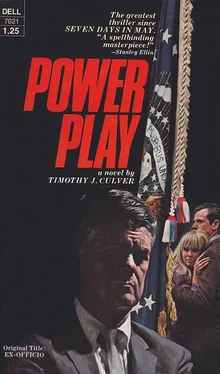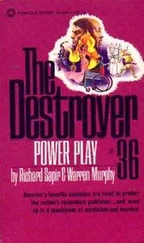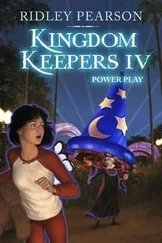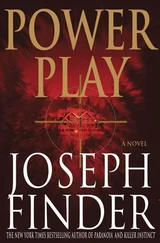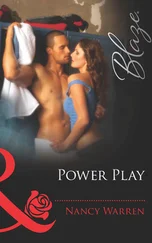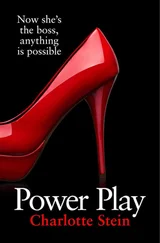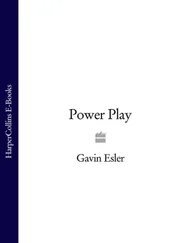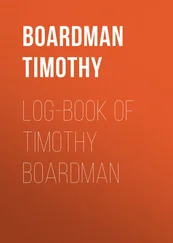Timothy Culver - Power Play
Здесь есть возможность читать онлайн «Timothy Culver - Power Play» весь текст электронной книги совершенно бесплатно (целиком полную версию без сокращений). В некоторых случаях можно слушать аудио, скачать через торрент в формате fb2 и присутствует краткое содержание. Город: New York, Год выпуска: 1971, ISBN: 1971, Издательство: Dell Books, Жанр: roman, на английском языке. Описание произведения, (предисловие) а так же отзывы посетителей доступны на портале библиотеки ЛибКат.
- Название:Power Play
- Автор:
- Издательство:Dell Books
- Жанр:
- Год:1971
- Город:New York
- ISBN:978-0440070214
- Рейтинг книги:5 / 5. Голосов: 1
-
Избранное:Добавить в избранное
- Отзывы:
-
Ваша оценка:
- 100
- 1
- 2
- 3
- 4
- 5
Power Play: краткое содержание, описание и аннотация
Предлагаем к чтению аннотацию, описание, краткое содержание или предисловие (зависит от того, что написал сам автор книги «Power Play»). Если вы не нашли необходимую информацию о книге — напишите в комментариях, мы постараемся отыскать её.
Occupation: Former President of the United States
Problem: Obsessive desire for power.
Loved and hated more than any man on earth, commanding absolute loyalty from the men and women who once had served him, defying the government he once had headed, Bradford Lockridge pursued his final and possibly insane vision of glory...
Power Play — читать онлайн бесплатно полную книгу (весь текст) целиком
Ниже представлен текст книги, разбитый по страницам. Система сохранения места последней прочитанной страницы, позволяет с удобством читать онлайн бесплатно книгу «Power Play», без необходимости каждый раз заново искать на чём Вы остановились. Поставьте закладку, и сможете в любой момент перейти на страницу, на которой закончили чтение.
Интервал:
Закладка:
There were ten people present. Five were wives of American diplomats, two were a tourist couple from Boston, one was a slender young Frenchman with a vaguely oily look about him; and the last were an American computer company executive, currently stationed in Paris, and his wife. The five diplomat wives wanted nothing more than to gossip among themselves about people unknown to everyone else present, as though Carrie’s apartment were a beauty salon. The tourists wanted to be amused, but not to participate. The Frenchman wanted desperately to establish some sort of connection with anyone at all, but seemed not to know how to go about it. And the computer couple preferred to talk about the increasing inequity of the American income tax.
Edward was the only saving grace, and Evelyn told herself ruefully that she could have stayed in her hotel room and listened to Edward and been well ahead of the game. Edward had decided to explain Paris to the tourists, and in so doing had separated the city into so many multi-leveled Parises that he was obviously getting confused himself after a while. There was the tourist Paris. There was the American Paris. There was the business Paris. There was the Parisian’s Paris, subdivided into several other Parises depending upon income, occupation and background of the particular Parisian. There was the Real Paris. There was the bohemian Paris. There was the lustful Paris. There was the gourmet Paris. It went on and on, Edward cheerful and voluble and totally baffling throughout, his audience laughing as much at their own confusion as at his performance.
After a while Evelyn was distracted from Edward’s monologue by the Frenchman, who had circled half the room to get to her side. He asked, in a mutter usually reserved for the sale of obscene postcards, if she were unattached. He didn’t quite meet her eye.
“Not really,” she said. “Excuse me, would you?”
Carrie’s apartment was large, with room upon room. Evelyn had been in it a dozen times or more in the last few years, but she was never quite sure about the layout. She left the parlor now, and because the entrance was to the left she turned right instead.
She was looking for Ann. Carrie’s oldest son, Daniel Gillespie, had died a retread in Korea, leaving a pregnant wife, Ann, who had moved in with Carrie and her own then-living husband, and who was still living under Carrie’s roof, she and her son Charles having made the move from the Maryland horse ranch to Paris when Carrie’s husband died. Ann was quiet, retiring, very shy, and tended to avoid the parlor when Carrie was entertaining. But she was pleasant to talk to, particularly when the parlor was dull, or when it contained a slightly oily Frenchman who wanted to know if one was unattached.
The first room she tried was occupied, but not with Ann Gillespie. Instead it contained two young men, one of whom she recognized at once as Charles, Ann’s son. “Hello,” she said. “I’m looking for your mother. I didn’t know you were home.”
“They graduated me,” Charles said, mock-surprise in his voice. “Princeton will never be the same.” Tall and very slender, eyeglassed, Charles at twenty-one still had the same hesitant, respectful, deprecatingly humorous manner that had throughout his childhood made adults automatically think of him as a “good boy.” And a good boy he invariably was, polite, attentive to his studies and obedient to the wishes of his elders.
“Congratulations,” Evelyn said. “What do you do now? Graduate school?”
Behind his glasses, Charles’ eyes looked worried. “I’m not sure,” he said.
“There comes a time,” the other young man said with dark passion, “to stop studying and start acting.” He ignored the pained look that Charles gave him, and stared intently at Evelyn, saying, with something mocking in his voice, “Don’t you think so, Aunt Evelyn?”
She frowned at him in surprise. Aunt Evelyn? Who was he? He was dark-haired, with the long lank hair no longer considered truly up-to-date in the states. His clothing was proper, but he wore it with a kind of careless ease. He was shorter and stockier than Charles, and seemed somewhat younger. And in some way familiar, though she couldn’t at all place him. She said, “Do I know you?”
“Depends how you mean that, Aunt Evelyn,” he said. “I’m Eddie.”
“Eddie! For Heaven’s sake, I didn’t even recognize you!” She stood staring at him, still having trouble believing it. This was Edward Lockridge, Jr., the son of the man subdividing Paris in the parlor. He was still only — what? — seventeen at the most. When she’d last seen him he was a neat and ordinary fifteen-year-old. “What’s happened to you in the last two years?” she asked him.
“Call it an awakening,” he said. He was holding a book in one hand, his finger in it to hold his place, and now he held it up to show her that it was one of the books by the brothers Cohn-Bendit. She recognized their names, but didn’t know the French title. “I have decided to join Tomorrow,” he said. Everything he said seemed to have trumpets behind it, except that all these declamations were announced in a brisk matter-of-fact way, as though he himself didn’t see any drama in his statements at all. “At the moment I’m recruiting Charlie.”
“We’re — talking things over,” Charles said. He seemed to be apologizing for something.
“Well, good luck to you both,” she said, and to Charles she said, “Is your mother around?”
“I think she’s in the sitting room. Down to your right and through the bedroom.”
“Thank you.”
Ann Gillespie was there, knitting and watching television: I Love Lucy, in French. Once a government opens the floodgates, as the French government finally and reluctantly had done, daytime television is the same everywhere.
The sitting room would have to be called cozy. It too had the park view, but was a much smaller and dimmer room, with more of a feeling of warmth and safety to it. Evelyn found herself smiling as she walked into the room, and it was for the room more than for the occupant. “Hello, Ann,” she said.
Ann looked up from the set. “Well, Evelyn! Carrie said you were coming to Paris. Is Bradford with you?”
“No, he had his meeting.” Ann hadn’t risen, and now Evelyn sat in a chair which gave her a view of Ann and the park, but not the television set. “This is a comforting room,” she said, over the chatter of French.
“I love it.” Ann was in her early forties now, a pleasant but washed-out looking woman, who wore no makeup, did her hair sensibly rather than fashionably, and dressed in drab but sturdy clothing. She was the kind of woman about whom the word most frequently spoken was reliable. She said, “Does Carrie have anyone interesting today?”
“Edward.”
Ann smiled, but she’d glanced at the television set and it was hard to tell if the smile was for Evelyn or Lucy. She said, “No one else?”
“Not really. There’s one sleazy little Frenchman who wanted to know if I was attached.”
This time the smile was clearly for Evelyn. “Isn’t that terrible?” Still smiling, Ann shook her head and said, “Carrie won’t turn anyone away, not anyone. I talk to her, but you know how it is to take care of an older person. They will have their own way.”
“Yes, won’t they,” Evelyn said, smiling back and thinking indulgently of Bradford. An anecdote about Bradford’s willfulness entered her head, and she was about to relate it when with a sudden shock she saw herself from outside, she saw herself as Ann was seeing her this minute — as anyone would see her this minute — and she sat back, her mouth open, and stared past Ann at the far wall.
“Evelyn? What’s the matter?”
Читать дальшеИнтервал:
Закладка:
Похожие книги на «Power Play»
Представляем Вашему вниманию похожие книги на «Power Play» списком для выбора. Мы отобрали схожую по названию и смыслу литературу в надежде предоставить читателям больше вариантов отыскать новые, интересные, ещё непрочитанные произведения.
Обсуждение, отзывы о книге «Power Play» и просто собственные мнения читателей. Оставьте ваши комментарии, напишите, что Вы думаете о произведении, его смысле или главных героях. Укажите что конкретно понравилось, а что нет, и почему Вы так считаете.
